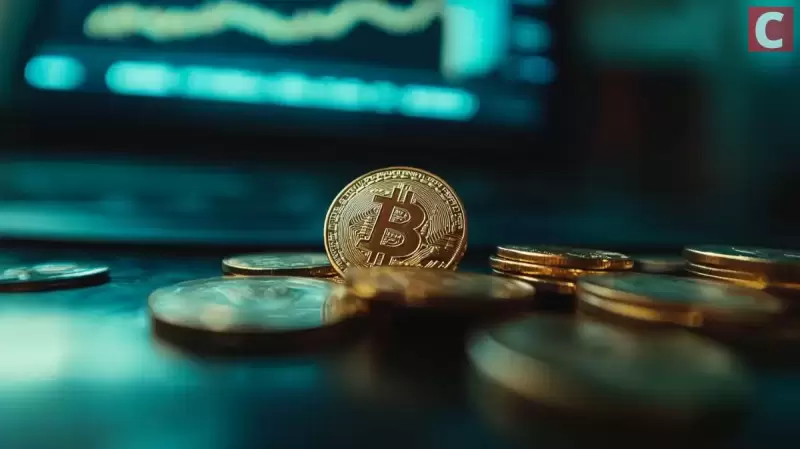 |
|
 |
|
 |
|
 |
|
 |
|
 |
|
 |
|
 |
|
 |
|
 |
|
 |
|
 |
|
 |
|
 |
|
 |
|
Cryptocurrency News Articles
Why Whales Are Eyeing XRP, SOL, ADA, and PLUTO
Jan 12, 2025 at 03:00 am
Whale activity is a crucial indicator in the cryptocurrency market, signaling upcoming shifts in market sentiment. Recently, whales have shown interest in a select group of projects: Ripple (XRP), Solana (SOL), Cardano (ADA), and the emerging PlutoChain ($PLUTO). But what is it that these whales are seeing that we might be missing?
These projects indeed bring innovative approaches to the blockchain world, each offering unique solutions to existing challenges. However, PlutoChain stands out as it could have the potential to significantly expand Bitcoin’s capabilities, positioning it as more than just a store of value.
Let's explore the reasons why whales are eyeing these projects and what makes PlutoChain a potential game-changer in the cryptocurrency space.
PlutoChain ($PLUTO): The Hybrid Layer-2 Solution That Could Revolutionize Bitcoin
Blockchain technology, despite its groundbreaking nature, still faces challenges related to speed and scalability. Bitcoin, in particular, is known for its security but suffers from inefficiency due to slower transaction speeds and higher fees. Enter PlutoChain, a hybrid Layer-2 platform that aims to enhance Bitcoin’s functionality without compromising its core principles.
PlutoChain's standout feature is its ability to enable transaction block times of just 2 seconds — a dramatic improvement compared to Bitcoin’s 10-minute block times. This could make PlutoChain a vital component in reducing network congestion and transaction fees while maintaining Bitcoin's security.
Moreover, PlutoChain's compatibility with Ethereum's Virtual Machine (EVM) would allow developers to port Ethereum-based applications — including DeFi platforms, NFT marketplaces, and AI tools — into Bitcoin’s ecosystem. Early testing shows that PlutoChain is capable of handling over 43,200 transactions daily, making it a promising solution for scalability.
Incorporating community-driven development, PlutoChain allows users to propose and vote on platform updates via its Discord channel, ensuring that the platform evolves in a way that benefits its user base. Backed by audits from reputable firms like SolidProof and QuillAudits, PlutoChain promises a secure and transparent environment for users.
With its combination of groundbreaking technology and community-first approach, PlutoChain could potentially reshape the future of Bitcoin and become a key player in expanding Bitcoin’s usability.
Ripple (XRP): Revolutionizing Cross-Border Payments with Institutional Support
Ripple's XRP is making waves in the financial world by offering a faster, more cost-effective solution for cross-border payments. Ripple has already integrated into Japan's $6.37 trillion banking sector, setting the stage for more efficient international transactions that can drastically reduce processing times and fees.
Ripple has also gained adoption by over 1,700 financial institutions worldwide, including major players like Bank of America. This growing institutional support highlights XRP’s potential to reshape the landscape of global financial transactions, making them faster, cheaper, and more efficient.
The XRP Ledger (XRPL) allows for high-speed, low-cost transactions, enabling Ripple to move beyond just payments and offer a broad range of blockchain applications. XRP’s increasing adoption in the financial sector indicates that it will remain an essential player in global finance.
Cardano (ADA): Advancing Blockchain Sustainability and Scalability
Cardano (ADA) is a decentralized blockchain platform that emphasizes scalability and sustainability, making it an attractive option for long-term growth. By utilizing a proof-of-stake consensus mechanism, Cardano significantly reduces energy consumption compared to traditional proof-of-work systems, aligning with global sustainability goals.
Cardano's scalability is enhanced by innovations like Hydra and Mithril, which focus on improving data compression and network capacity. These improvements allow Cardano to manage large-scale applications efficiently while ensuring a secure, resilient infrastructure.
Cardano's commitment to peer-reviewed research and formal verification methods adds to its reputation as a reliable and trustworthy blockchain platform. With an eye on sustainability and scalability, Cardano is well-positioned to capture the attention of developers and enterprises seeking blockchain solutions for the future.
Solana (SOL): Powering Web3 with Speed and Efficiency
Solana (SOL) is a high-performance blockchain that excels in powering Web3 applications with incredible speed and low costs. By utilizing a unique combination of Proof-of-History (PoH) and Proof-of-Stake (PoS) consensus mechanisms, Solana achieves remarkable scalability, processing up to 65,000 transactions per second (TPS). This high throughput makes it an ideal platform for decentralized applications (dApps) that require fast and reliable transaction processing.
Transaction fees on Solana are remarkably low, averaging around $0.00025 per transaction, which makes it economically feasible for both high-frequency trading and microtransactions. The platform's ability to handle thousands of transactions per second has made it a go-to choice for decentralized finance (DeFi) platforms, NFT marketplaces, and other Web3 services.
Solana's high-speed architecture ensures that users experience seamless
Disclaimer:info@kdj.com
The information provided is not trading advice. kdj.com does not assume any responsibility for any investments made based on the information provided in this article. Cryptocurrencies are highly volatile and it is highly recommended that you invest with caution after thorough research!
If you believe that the content used on this website infringes your copyright, please contact us immediately (info@kdj.com) and we will delete it promptly.
-

-

- MANTRA ($OM) Prepares for Another Breakout as Bullish Predictions, Regulatory Milestones, and Institutional Integrations Converge
- Apr 03, 2025 at 05:30 pm
- MANTRA ($OM), one of the breakout stars in the real-world asset (RWA) tokenization space, is making headlines again as bullish predictions, regulatory milestones, and institutional integrations converge to shape a promising outlook for Q2 2025.
-

-

- Solana (SOL) Struggles to Maintain Crucial Support Levels as Mutuum Finance (MUTM) Captures Investor Interest
- Apr 03, 2025 at 05:25 pm
- The cryptocurrency market is witnessing a turbulent period as Solana (SOL) struggles to maintain crucial support levels while a new player, Mutuum Finance (MUTM), is capturing investor interest with its promising presale figures.
-

- Bitcoin (BTC), Ethereum (ETH), and XRP Prices Dip as Whale Sell-offs, ETF Outflows, and Recession Fears Weigh on the Crypto Market.
- Apr 03, 2025 at 05:20 pm
- Bitcoin (BTC) price led the wider altcoin market, led by Ethereum (ETH) and XRP, in a bearish outlook in the past 24 hours. The flagship coin dropped over 1 percent
-

-

-

-





























































